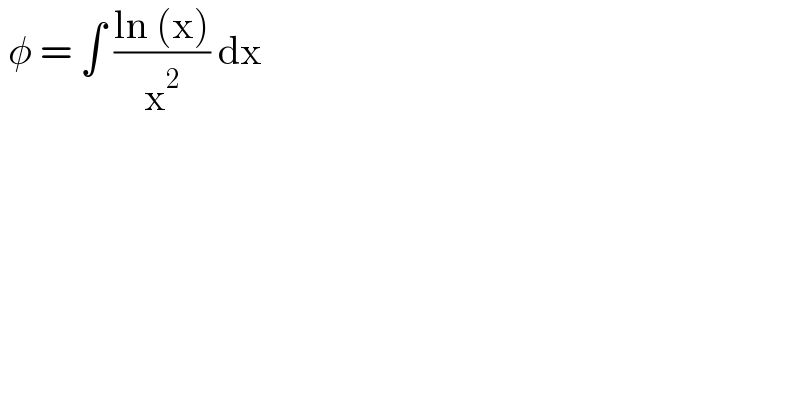
Question and Answers Forum
Question Number 129060 by benjo_mathlover last updated on 12/Jan/21

Answered by liberty last updated on 12/Jan/21
![let ln (x)=h ⇒x = e^h φ = ∫ (h/e^(2h) ) (e^h dh )= ∫ h.e^(−h) dh ; [ by parts ] φ=−h.e^(−h) −e^(−h) + c φ = −((ln (x))/x)−(1/x) + c φ = ((−ln (x)−1)/x) + c](Q129062.png)
| ||
Question and Answers Forum | ||
Question Number 129060 by benjo_mathlover last updated on 12/Jan/21 | ||
 | ||
Answered by liberty last updated on 12/Jan/21 | ||
![let ln (x)=h ⇒x = e^h φ = ∫ (h/e^(2h) ) (e^h dh )= ∫ h.e^(−h) dh ; [ by parts ] φ=−h.e^(−h) −e^(−h) + c φ = −((ln (x))/x)−(1/x) + c φ = ((−ln (x)−1)/x) + c](Q129062.png) | ||
| ||